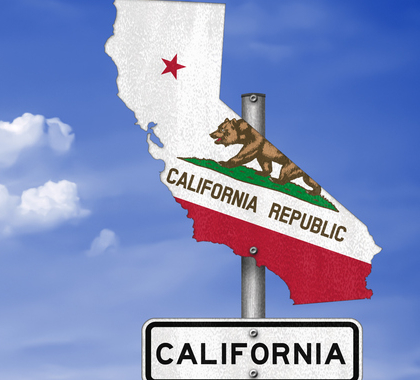Climate Change Weekly #19
During last week’s Republican presidential debate, Jon Huntsman doubled down on Al Gorism, claiming global warming skeptics are making “comments that fly in the face of what 98 out of 100 climate scientists have said.” Just as moderator John Harris of Politico asked Rick Perry to name some of the scientists he agrees with, Harris should have asked Huntsman just what the “98 out of 100 climate scientists” believe.
In the “survey” to which Huntsman alluded, scientists were invited to participate in a short online survey. Despite what Huntsman said, not even 100 climate scientists chose to participate. The two primary questions were simple: 1. Have global temperatures risen during the past 200 years? and 2. Are humans a significant contributing factor to this?
Regarding the first question, in the early 1800s the world was in the grips of the Little Ice Age, which brought about the planet’s coldest temperatures since the last ice age epoch ended roughly 10,000 years ago. The answer to Question 1 is not only “risen,” but more appropriately (and sarcastically) “Duh!” (And it’s a good thing the answer is “risen.” Only the most zealous and delusional of global warming activists would argue the Little Ice Age brought about beneficial climate conditions.)
Regarding the second question, is human activity a significant contributing factor? Notice how the question did not say “sole factor,” “majority factor,” or even “primary contributing factor.” Rather, the term is merely “significant contributing factor.” More precisely, if human activity is not a “significant” contributing factor then it must be an “insignificant” contributing factor. What is the threshold between “significant” and “insignificant”? Five percent? Ten percent? The threshold of “insignificance” is certainly no higher than that.
So, are humans responsible for at least 10 percent or so of recent global warming? In other words, are humans responsible for roughly – and merely – 0.06 degrees Celsius of warming during the past century? Most global warming “skeptics” certainly believe that!
So then, just what do “98 out of 100 climate scientists” believe? Nothing of significance, unless you like to misrepresent meaningless surveys to score cheap political points.
SOURCE: Forbes.com
IN THIS ISSUE
No warming link in Texas drought … Extreme weather events are within normal parameters … New study shows climate models claim too much warming … SPPI produces 33rd state-specific climate report … Sea level rise slowing down … … Asian soot more prevalent than expected … ClimateWiki update
NO WARMING LINK IN TEXAS DROUGHT
Climate scientist Roy Spencer has written an excellent article debunking the notion that global warming is responsible for the current Texas drought. Spencer presents data showing a long-term increase in U.S. summertime rainfall, plus data showing no long-term decline in Texas summertime rainfall. Indeed, the 13-year period from 1998 through 2011 marked the longest period on record when Texas had at least five inches of statewide-averaged June-July rainfall every year.
SOURCE: Roy Spencer
EXTREME WEATHER EVENTS ARE WITHIN NORMAL PARAMETERS
Climate scientist Judith Curry, a moderate “warmist” in the global warming debate, sets the record straight regarding a Seth Borenstein Associated Press article claiming an increase in extreme weather events. Curry observes extreme weather events “have not been exceptional and their clustering is reminiscent of the 1950’s, there doesn’t seem to be anything exceptional going on that cannot be explained by natural variability of chaotic weather systems.”
SOURCE: Climate Etc.
NEW STUDY SHOWS CLIMATE MODELS CLAIM TOO MUCH WARMING
A recent study led by prominent global warming alarmist Susan Solomon shows global warming models continue to claim too much planetary warming, despite the spin applied by Solomon and a sympathetic media, report the scientists at World Climate Report. Key to the findings are misunderstandings and misrepresentations regarding the degree to which aerosols are cooling the planet.
SOURCE: World Climate Report
SPPI PRODUCES 33RD STATE-SPECIFIC CLIMATE REPORT
The Science and Public Policy Institute has published a report on the observed effects of global warming on Louisiana. With publication of the Louisiana report, SPPI has now published state-specific global warming reports regarding two-thirds of U.S. states.
SOURCE: Science and Public Policy Institute
SEA LEVEL RISE SLOWING DOWN
The short-term rate of sea level rise has decreased by 25 percent during the past few years, and 15 percent of the rise that has occurred is due to factors unrelated to global warming, according to a new study in the science journal Nature. Environmental scientist Chip Knappenberger summarizes the study and discusses its implications at Master Resource.
SOURCE: Master Resource
ASIAN SOOT MORE PREVALENT THAN EXPECTED
Scientists working with the National Center for Atmospheric Research and the National Oceanic and Atmospheric Administration (NOAA) report surprisingly high amounts of black carbon – emanating from Asian nations such as China – in the atmosphere above the central Pacific Ocean. “Levels were comparable with those measured in megacities such as Houston or Los Angeles. This suggests that western Pacific sources of black carbon are significant and that atmospheric transport of the material is efficient,” NOAA scientist Ryan Spackman reports.
SOURCE: National Center for Atmospheric Research
CLIMATEWIKI UPDATE
The Heartland Institute has created a Web site, ClimateWiki.org, to help everyone – from high school students to scientists working in the field – quickly find the latest and most reliable information on climate science. Please send your questions, suggestions for new pages, or improvements to current ones to John Monaghan at [email protected]. And if you have new research to share, ClimateWiki.org is the perfect place.
An example from ClimateWiki, Emissions from Agriculture, reads in part:
According to the EPA’s February 2011 estimates, agriculture accounts for only about 6.3% of total emissions at about 419.3 million metric tons of carbon. This figure is based exclusively on enteric fermentation in domestic livestock, livestock manure management, rice cultivation, agricultural soil management, and field burning. Fuel combustion in agriculture was grouped within the industrial energy category. Carbon storage on the other hand was estimated as offsetting about 17.4 million metric tons of carbon with a range of as much as 47.3 million metric tons offset to 11.6 million metric tons released.
In the past, the degree to which agriculture affects the climate has been overstated. One such report claimed that livestock alone was worse for the climate than transportation. (Taylor 2010). What the authors of this study later admitted was that while they conducted the emissions from livestock based on an exhaustive life cycle analysis, they did not give the same treatment to the transportation sector. This is not to say that livestock emissions are small; their impact is significant but it should be measured within the greater context before such broad accusations are made.
If you have questions about the ClimateWiki or about The Heartland Institute, contact Jim Lakely, director of communications, at [email protected] or call 312/377-4000.
RECOMMENDED SITES AND NEWSLETTERS
Power for USA
Science and Environmental Policy Project (SEPP)
ClimateWiki
Master Resource
The Climate Bet
International Climate Science Coalition
Climate Scientists’ Register
Science and Public Policy Institute
Climate Depot by Marc Morano
World Climate Report by Dr. Patrick Michaels
E-FACT Report by the Committee for a Constructive Tomorrow (CFACT)
Global Warming Policy Foundation by Benny Peiser
Biweekly Updates from the Cooler Heads Coalition
Climate and Environment Review by the Center Science and Public Policy
Nongovernmental International Panel on Climate Change by Craig Idso et al.
Watts Up With That? by Anthony Watts
ICECAP by Joseph D’Aleo
Climate Audit by Steve McIntyre
Climate Science by Roger Pielke Sr.
Junk Science by Steve Milloy
The Heartland Institute is a national, nonprofit, nonpartisan research organization whose mission is to discover, develop, and promote free-market solutions to social and economic problems. The Heartland Institute publishes the monthly newspaper Environment & Climate News and sponsors the International Conference on Climate Change, the largest regular gathering of global warming experts challenging the notion that humans are creating a global warming crisis. James M. Taylor is senior fellow for environment policy at The Heartland Institute and managing editor of Environment & Climate News.




